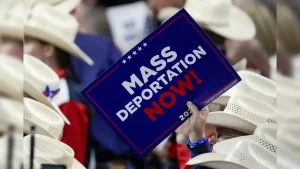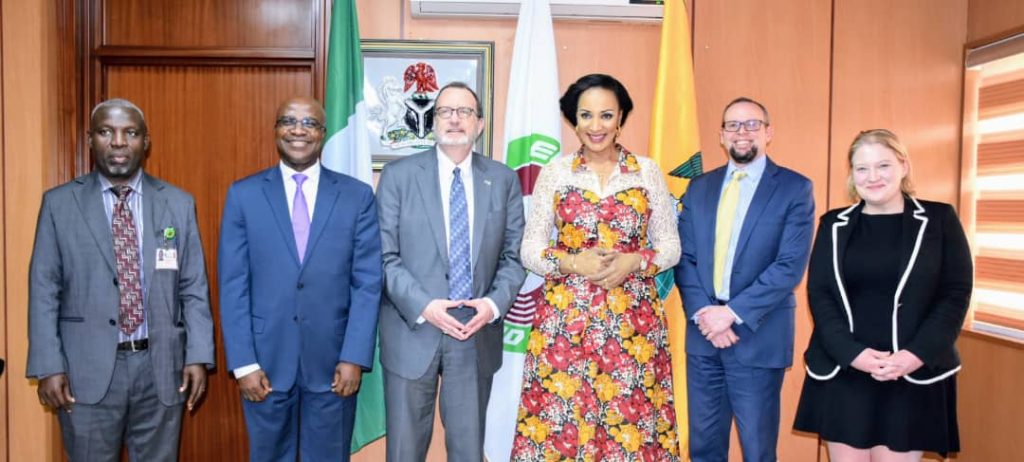CurrentReport Blog The Federal Government of Nigeria has called on the United States to adhere to established conventions when deporting Nigerian immigrants.

This appeal comes amid concerns over the potential suspension of the Drop Box Visa System and the mass deportation of Nigerian nationals from the U.S.
Nigeria Seeks Dignified Repatriation for Deportees
Speaking during a courtesy visit by U.S. Ambassador to Nigeria, Richard Mills Jr., at the Tafawa Balewa House, Abuja, Nigeria’s Minister of State for Foreign Affairs, Ambassador Bianca Odumegwu-Ojukwu, highlighted the emotional and financial burdens many Nigerians in the U.S. are facing due to the deportation policy.
She revealed that 201 Nigerians are currently held in U.S. immigration camps, with 85 already cleared for deportation.
“We want a situation where there will be commitments. If there will be repatriation, we want dignified return,” Odumegwu-Ojukwu stated.
She emphasized that many deportees support families back home, and urged the U.S. government to allow them ample time to manage their assets before deportation.
“It will really be traumatic, especially for those who have not committed any violent crime,” she added.
Concerns Over Drop Box Visa Policy Suspension
The minister also raised concerns about the possible suspension of the U.S. Drop Box Visa System, which allows eligible Nigerians to renew their visas without undergoing fresh interviews.
She urged the U.S. government to clarify its position on the matter, as many Nigerians rely on the system for seamless travel to the United States.
“We are asking that the U.S. government issue a statement clarifying its actual position on the Drop Box system to assuage the concerns of anxious Nigerians,” she noted.
Impact on Nigerian Students and USAID Programs
Odumegwu-Ojukwu also pointed out that about 14,000 Nigerian students currently study in the U.S., and their parents are worried about potential changes to student visa policies under the new U.S. administration.
Additionally, she expressed concern over the future of USAID programs in Nigeria, stressing that many non-governmental organizations (NGOs) depend on U.S. humanitarian aid to support vulnerable communities.
“We appeal that this initiative be preserved, even if the agency is abrogated. There must be a way to ensure that the poor beneficiaries are not abandoned,” she urged.
Strengthening U.S.-Nigeria Bilateral Relations
Odumegwu-Ojukwu emphasized the need for stronger bilateral ties between Nigeria and the U.S., particularly in areas such as trade and investment.
She called for increased U.S. investment in Nigeria’s mining sector, stressing that diversifying economic partnerships could boost Nigerian exports to the U.S.
U.S. Response to Deportation and Visa Concerns
Responding to Nigeria’s concerns, U.S. Ambassador Richard Mills Jr. assured that the Drop Box Visa Policy has not been suspended, but is currently under review.
He also clarified that deportations will primarily affect convicted criminals and individuals who have violated U.S. immigration laws.
“The first group to be deported will be convicted prisoners and those who have clearly violated immigration laws,” Mills stated.
On AGOA (African Growth and Opportunity Act), which is set to expire in September 2025, Mills said it is up to lawmakers to push for its renewal, adding that the current U.S. administration will prioritize trade and commerce.
As Nigeria and the U.S. navigate their diplomatic ties, issues surrounding deportations, visa policies, and trade agreements remain central to discussions.
With thousands of Nigerians living, studying, and working in the U.S., the outcome of these negotiations will significantly impact bilateral relations and the Nigerian diaspora.












